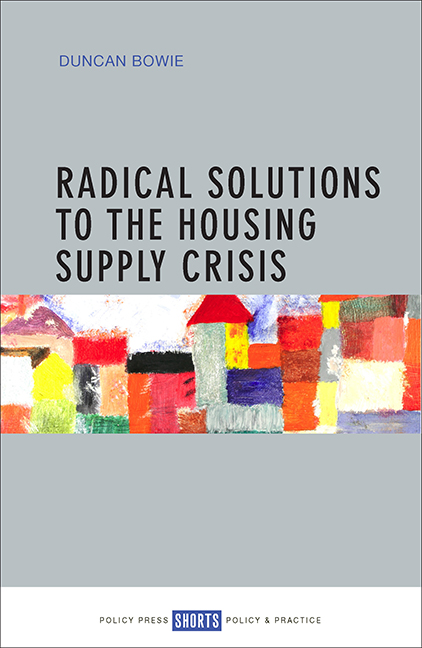2 - Critiques of the current direction of government policy
Published online by Cambridge University Press: 05 April 2022
Summary
For the last two decades, there has been a large degree of consensus between the Conservative and Labour Parties on the appropriate government approach to housing policy and specifically to intervention in the housing market and the supply of new homes. This consensus is now being challenged. While Chapter Three will seek to trace some of the policy developments since the early 1980s, this chapter is intended to review the debates on housing policy within the last decade, focusing on the Labour Party and progressive engaged academics and practitioners in the period before and after the 2015 general election. In doing so, the author is not intending to focus on academic critiques of the current consensus or the wider debates on the impact of neoliberalism on urban development, including the work of Harvey (1989, 2006, 2007) and Berry (2014), among others. It is necessary, however, to acknowledge that three fundamental critiques exist. The first is the neoliberal critique from academics such as Paul Cheshire (Cheshire et al, 2014) and Alun Evans (Evans and Hartwich, 2005), a critique shared by many policy advocates working within the Policy Exchange think tank, including Alex Morton, policy advisor to the prime minister until spring 2016, and Nick Boles, Planning Minister in the 2010–15 administration. This critique argues that the main constraint on housing delivery and therefore affordability is the bureaucratic and constraining planning system, which excludes a significant proportion of land, notably, the green belt, from development, and therefore that a liberalisation of planning would have a positive outcome.
A second perspective is that of Danny Dorling (2014), who argues that there is no actual housing supply crisis in England, but that there is a problem of distribution, that is, that the housing stock needs to be more fairly distributed. There is a third critique, that of Costas Lapavitsas (2013), which argues that the housing crisis is primarily the product of the financialisation of capital – that capital is now focused on investment rather than production. The view of the author is that each of these critiques have considerable validity but that the crisis we face is a product of a wide range of factors and that no single theory presents a satisfactory contextualisation.
- Type
- Chapter
- Information
- Radical Solutions to the Housing Supply Crisis , pp. 25 - 50Publisher: Bristol University PressPrint publication year: 2017



